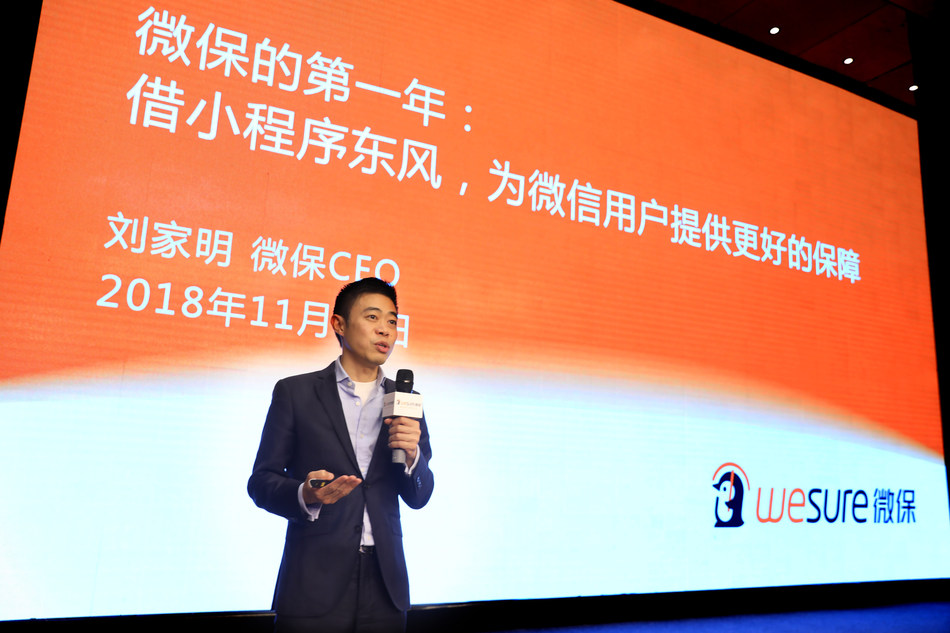
How Tencent is Trying to Fill China’s US$805 B Insurance Gap Using Social Media
by Fintech News Hong Kong September 3, 2019Over the past years, China’s Internet giant Tencent has been expanding its strategic positioning in the insurance industry.
The Chinese firm’s latest move has been to lead Xiaobang Guihua’s RMB 200 million (US$28.4 million) Series B equity funding round in August, reports Kr-Asia.
Beijing-based insurtech startup Xiaobang Guihua is an insurance advisory platform running on WeChat’s Mini Program ecosystem that allows users to select and purchase insurance policies from a variety of different companies directly through Tencent’s multi-purpose app WeChat.
Xiaobang Guihua also recommends insurance products via its WeChat public account and via a standalone app, and sells online courses developed in-house on how to buy insurance and financial products via various platforms including its own WeChat public account and third-party platforms such as Nicomama, ichazuo.com, investorscn.com and NetEase.
The company claims nearly 500,000 clients.

Xiaobang Guihua team at Reinsurance Group of America office, 2018, via xiaobangguihua.com
Tencent, the owner of China’s super-app and largest messaging app WeChat, began aggressively entering the insurance industry in 2017, forming a partnership with Fubon Financial in August 2017 to sell Fubon’s P&C insurance policies.
Tencent’s online insurance agency Wemin Insurance Agency, which was formed in October 2016, received approval from China’s insurance regulator in October 2017 to sell insurance products on the firm’s messaging apps WeChat and QQ.
In November 2017, Tencent rolled out its WeSure insurance platform, which allows users to make insurance purchases, inquiries and claims directly though WeChat and QQ. As of November 2018, WeSure had formed partnerships with more than 20 insurance companies and recorded over 20 million monthly active users.

Alan Lau, the Chairman and CEO of WeSure, December 2018, via Prnewswire
WeSure launched in May attractive protection plans in a bid to grab more share of China’s booming online private health insurance market. This includes introducing a low-cost health insurance plan in collaboration with Taikang Life, one of China’s largest life insurers. The new offering allows policyholders a one-off insurance contract and extends coverage for six years without having to buying it once a year and requalify for cover.
In January, WeSure moved into the health management sector with the launch of the WeFit Health Plan, a discount-reward scheme that encourages participants to engage in friendly competition with family, friends and co-workers in order to receive benefits such as reduced rates on insurance packages, free medical check-ups, and discounts on gym membership and sports apparel.
Tencent is tapping into China’s so-called health protection gap, which Swiss Re estimates amounts to about US$805 billion, the largest in Asia. But the gap is being rapidly filled by Internet insurance products and services, a market that has seen explosive growth over the past years, with the number of insurance policies sold online surging 18-fold from 2012 to 2016, according to data from the Insurance Association of China.
Tencent isn’t the only Internet firm in China that’s gotten into the insurance game. E-commerce giant Alibaba has been quietly running a booming health insurance side business through its financial affiliate Ant Financial.
In October 2018, Ant Financial launched a healthcare coverage product called Xiang Hu Bao, which, according to a report by Bloomberg, covers members’ treatment for diseases such as cancer, Ebola, and Alzheimer’s disease. Less than one year after being launched, the healthcare coverage product had already signed up about 65 million members.
Last week, China’s biggest search engine Baidu launched its blockchain medical solution that allows for the secure sharing and distribution of medical data. Leveraging Baidu’s own open source blockchain platform XuperChain, the solution aims to provide a single platform for not just medical data but also to process insurance claims.
Image Credit: Featured Image – Tencent’s Facebook Page,








